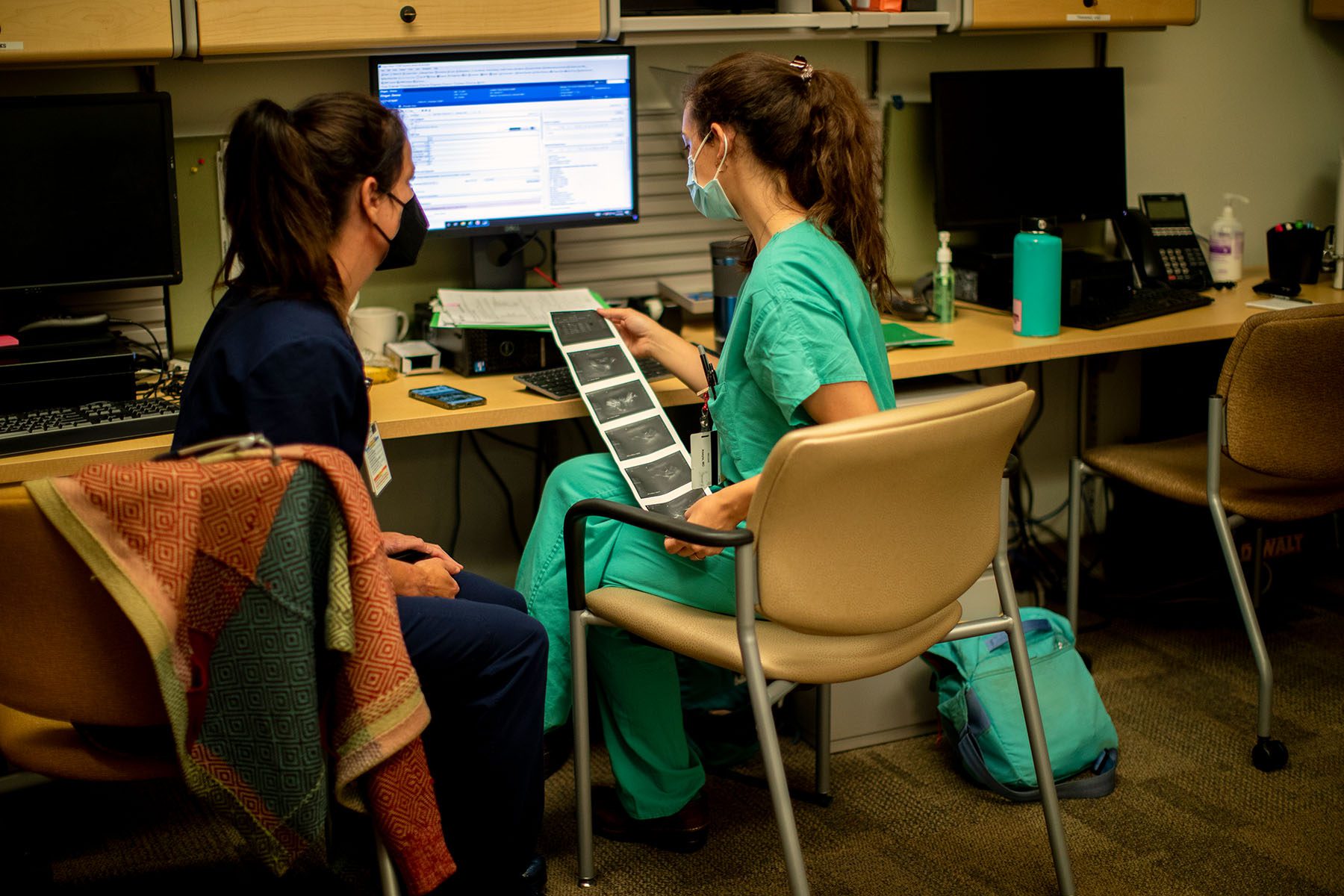A Montana abortion provider announced last week that it wouldn’t provide the most common type of abortion to people traveling from out of state. As states surrounding Montana ban abortion, the move exposes a major legal concern that could lead to clinics across the country implementing similar policies.
Since the Supreme Court overturned Roe v. Wade, the 1973 decision that guaranteed the right to an abortion, Montana has emerged as a potential hub in the upper northwest. South Dakota has already begun to enforce a total abortion ban — and already, people have traveled from there to Montana to seek abortions. North Dakota, Wyoming and Idaho are all slated to enforce total abortion bans in the coming weeks.
But Planned Parenthood of Montana, which operates five clinics in the state, is no longer providing medication abortions — which account for the majority of abortions — to people from outside of the state. Patients from out of state are still able to receive surgical abortions at the clinic. The decision reflects a looming uncertainty over how far state prosecutors are willing to go to criminalize the procedure.
“Planned Parenthood of Montana, like all of our affiliates across the country, are not making decisions about health services lightly,” said Alexis McGill Johnson, president of Planned Parenthood. “Just like other abortion providers, Planned Parenthood providers are being forced to make very difficult operational decisions due to the rapidly shifting landscape of access in many states.”
Some providers and legal experts worry that anti-abortion lawmakers could use aggressive enforcement to undercut people’s ability to go out of state for an abortion.
-
More abortion coverage
- ‘This day really is about her future’: Why these parents and their children are rallying for abortion rights
- Abortion clinic director says Ohio’s swift move toward a six-week ban was ‘an unnecessary cruelty’
- Abortions are now harder to access. Thanks to inflation, they’re also far more expensive.
“We’re going to see providers all over the country assessing their risks based on the specific language of a state law, the neighboring state’s attitude, as well as their own appreciation and tolerance for risk,” said David Cohen, a professor at Drexel University’s Kline School of Law. “Any of the states with abortion bans are going to include some aggressive prosecutors who might want to read their state laws in a way that tries to apply to other people in other states, even without a new law that targets travel.”
If physicians do not feel safe providing medication abortions to patients from out of state, “we’re in a worse place than we thought we were,” said Dr. Jennifer Kerns, an associate professor at the University of California San Francisco who provides abortions in California and Kansas.
Many patients prefer taking medication abortion to having an in-office procedure, she said. More physicians and health care professionals feel comfortable providing them, meaning that medication availability opens up more options for where someone can find an abortion. The pills can also be faster to administer than surgical abortions, meaning doctors who are seeing a surge in out-of-state patients have the capacity to treat more people. Patients who get a pill don’t need intravenous sedation, and are more often able to drive themselves home if they don’t have someone helping them get to the clinic.

“It’s really disheartening,” Kerns said. “If this is the direction that states are going to take where [abortion] is legal, we’re going to have a much more amplified problem on our hands.”
At issue is the nature of how medication abortions even work. The two-pill regimen, which is highly safe and effective, can be given at an abortion clinic but then administered from home. (The federal Food & Drug Administration has also said medical providers can mail the pills directly to patients.) Patients take the first pill, mifepristone, and follow up with the second, misoprostol, 24 to 72 hours later. That means that while the pills may be provided in a state that has not banned abortions, the patient could take one or both after returning home — potentially in a state that has criminalized abortion. In that situation, it’s not clear if physicians who prescribed the pills would be held liable.
“It’s just a totally novel question about where did the abortion occur. Did it occur where they were dispensed, or where they were taken?” said Greer Donley, an assistant professor at the University of Pittsburgh who specializes in medication abortion law. “I don’t know if there’s any case law at all. But it opens up a lot of risk.”
A spokesperson for Planned Parenthood said she could not specify whether other affiliates might make similar decisions. But legal experts worry that similar changes are likely, particularly in states where the government has not protected providers from out-of-state prosecution.
-
The Latest:
So far, only a handful of states — Connecticut, New York, Delaware and New Jersey — have passed laws specifically shielding medical providers from being prosecuted under abortion restrictions passed in other states. Governors in Massachusetts, Minnesota, New Mexico and Nevada have issued executive orders saying they will not extradite abortion providers to states that have banned abortion provision, and that state employees will generally not comply with those out-of-state investigations.
Those laws and orders confer some level of protection on abortion providers, lessening the risk of providing a medication abortion to someone from out of state.
In fact, that protection is in large part why Dr. Eve Espey, an OB/GYN and abortion provider in Albuquerque, New Mexico, has continued to provide medication abortion to patients traveling to her clinics from out-of-state — patients coming largely from Texas and Oklahoma, which have both been enforcing near or total abortion bans for months.
“We are really privileged to be able to take care of patients who desperately need medical care, and we’re really committed to that task,” she said.
Legislation is in the works in California but has not yet passed. The Pittsburgh City Council is weighing a similar city law, which would make it the first city in the country to pass its own abortion provider “shield law” without state action.
But providers and patients in other states remain at risk, Cohen said. In particular, he pointed to Illinois and Colorado, two states that are expected to become major access points for people traveling out of state to seek abortions. So far, neither has implemented any law or executive order that could protect physicians or other clinic staff who help provide abortions.
“I am concerned. Everyone’s going to be evaluating risk in different ways, and it’s going to result in the chilling of abortion services in different places,” Cohen said. “It’s frustrating Illinois and Colorado have not done this. You look at a map and it’s obvious where people are going to travel.”








